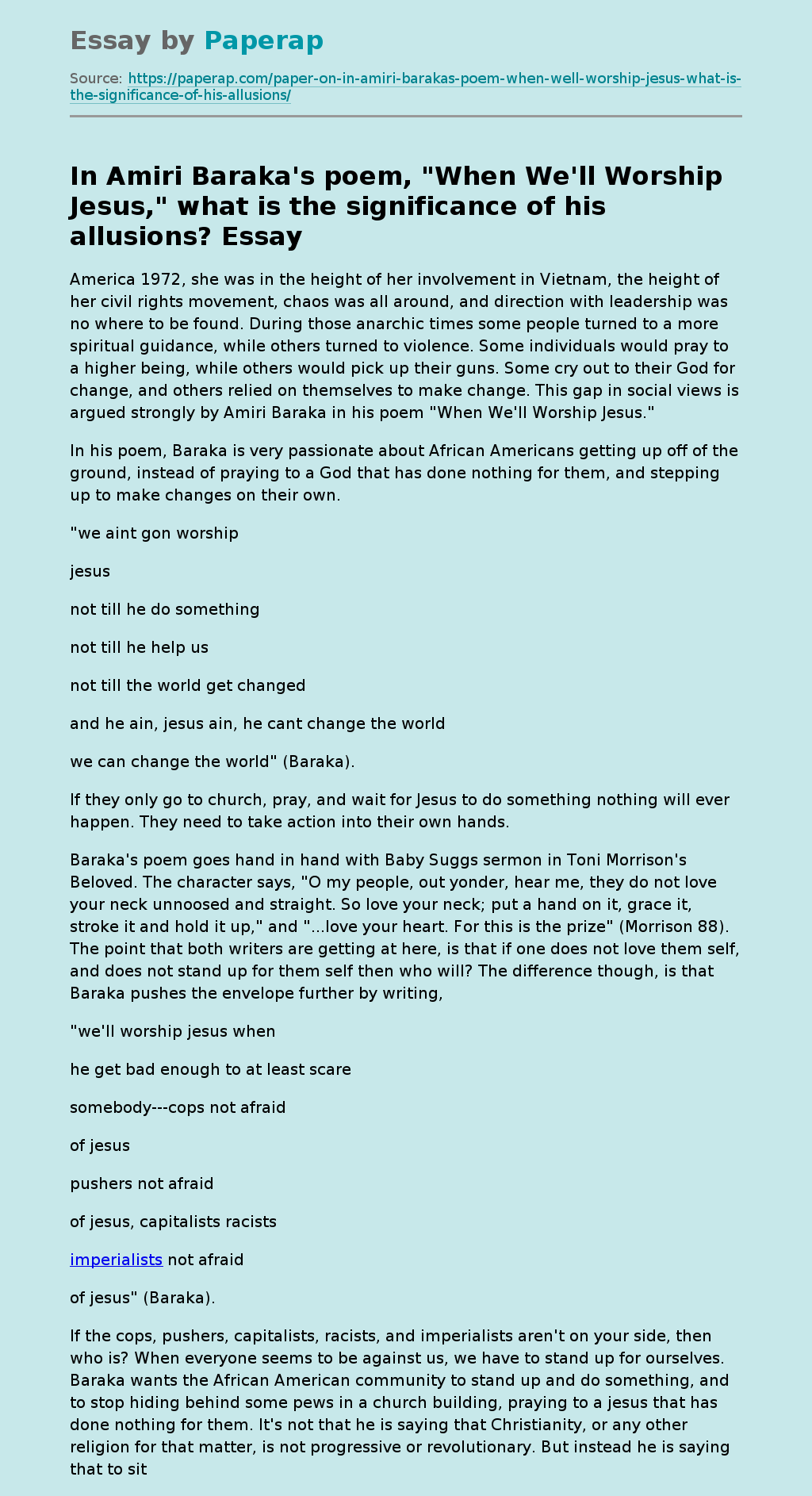Allusions in Baraka's Jesus Poem
America 1972, she was in the height of her involvement in Vietnam, the height of her civil rights movement, chaos was all around, and direction with leadership was no where to be found. During those anarchic times some people turned to a more spiritual guidance, while others turned to violence. Some individuals would pray to a higher being, while others would pick up their guns. Some cry out to their God for change, and others relied on themselves to make change. This gap in social views is argued strongly by Amiri Baraka in his poem “When We’ll Worship Jesus.
”
In his poem, Baraka is very passionate about African Americans getting up off of the ground, instead of praying to a God that has done nothing for them, and stepping up to make changes on their own.
“we aint gon worship
jesus
not till he do something
not till he help us
not till the world get changed
and he ain, jesus ain, he cant change the world
we can change the world” (Baraka).
If they only go to church, pray, and wait for Jesus to do something nothing will ever happen. They need to take action into their own hands.
Baraka’s poem goes hand in hand with Baby Suggs sermon in Toni Morrison’s Beloved. The character says, “O my people, out yonder, hear me, they do not love your neck unnoosed and straight. So love your neck; put a hand on it, grace it, stroke it and hold it up,” and “…love your heart.
For this is the prize” (Morrison 88). The point that both writers are getting at here, is that if one does not love them self, and does not stand up for them self then who will? The difference though, is that Baraka pushes the envelope further by writing,
“we’ll worship jesus when
he get bad enough to at least scare
somebody—cops not afraid
of jesus
pushers not afraid
of jesus, capitalists racists
imperialists not afraid
of jesus” (Baraka).
If the cops, pushers, capitalists, racists, and imperialists aren’t on your side, then who is? When everyone seems to be against us, we have to stand up for ourselves. Baraka wants the African American community to stand up and do something, and to stop hiding behind some pews in a church building, praying to a jesus that has done nothing for them. It’s not that he is saying that Christianity, or any other religion for that matter, is not progressive or revolutionary. But instead he is saying that to sit and do nothing, calling it praying, is just plain useless, even to the point of cowardice. That the only way to make change is to force it!
“Build the new world out of reality, and new
vision
we come to find out what there is of the world
to understand what there is here in the world!
to visualize change, and force it.
we worship revolution” (Baraka).
To force it, call for revolution, and not only will we visualize change, but we will worship it. The change that the civil rights movement called for during these times, was a change that would need action to be taken.
Allusions in Baraka's Jesus Poem. (2019, Jan 06). Retrieved from https://paperap.com/paper-on-in-amiri-barakas-poem-when-well-worship-jesus-what-is-the-significance-of-his-allusions/

